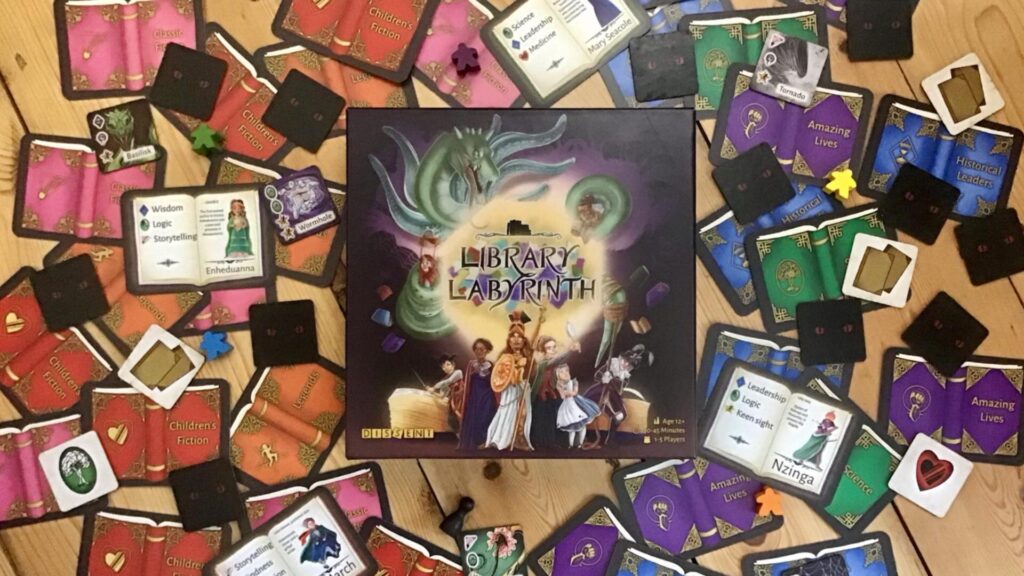
Boardgames, what makes them great – Jess @ Dissent Games tells us!
Affiliate Note: I may earn a small commission if you go off-site by clicking one of my links,
I like to be open and transparent but rest assured, none of these are at any additional cost to you.
Read more here: Affiliate Disclosure
I confess I am a huge board game fanatic… so much so I can never walk past a shop that has the slightest musing of a board game without going in, and usually walking out with one in my hand.
Board games are a great way to socialize and have fun. They are also a good way to learn about history, culture, and even math. They are also one of the oldest forms of gaming in the world and they have been around for centuries.
Board games can be found in many different shapes and sizes, but they all have one thing in common – they provide an opportunity for people to interact with each other while playing a game that is not on a screen.
I was lucky enough to have some time with the Dissent Games team and Jess in particular, who thankfully did not run away from a few questions I threw their way.
Take a look at our interview with a game designer and producer, who shares how to get an edge in your profession as an aspiring professional.
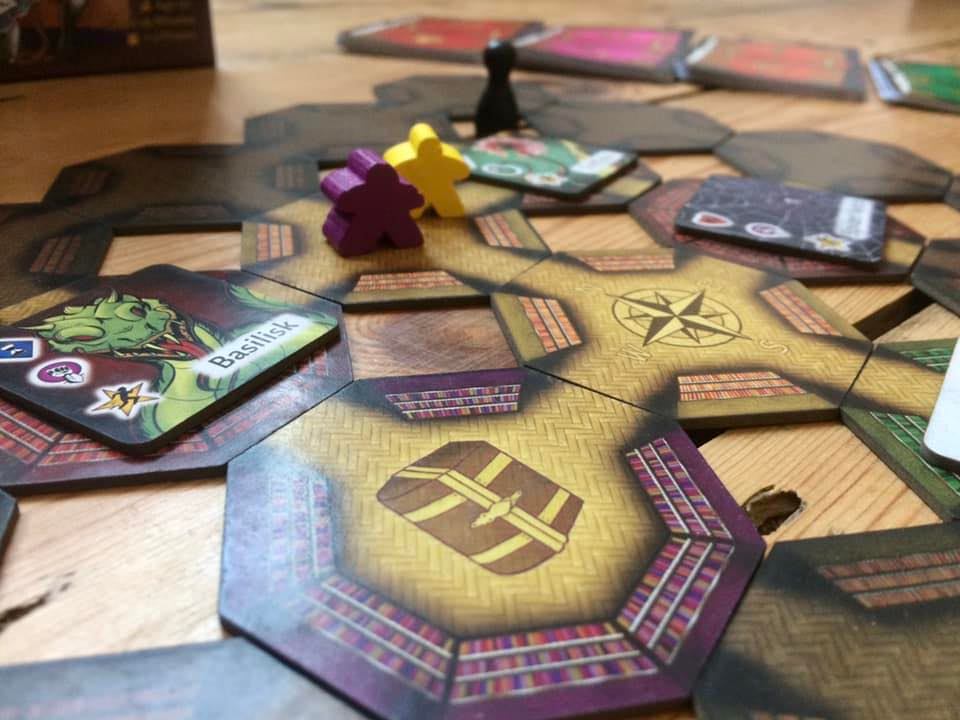
Ben:
Are you able to describe game designing to others who wouldn’t or don’t know what it is?
Jess:
A game can be anything — as long as it’s fun, and there are choices the players need to make. Most are competitive, but it could be a team game or a cooperative (everyone against the board/clock) game. And in every group of people who like playing games, there are a few who really, really want to change the games — who can’t help but think “what if we did this instead of that?” Or who have something interesting happen to them and want to put it into a game!
That’s where the urge to design a game comes from. It can be as simple as making a game about an everyday experience.
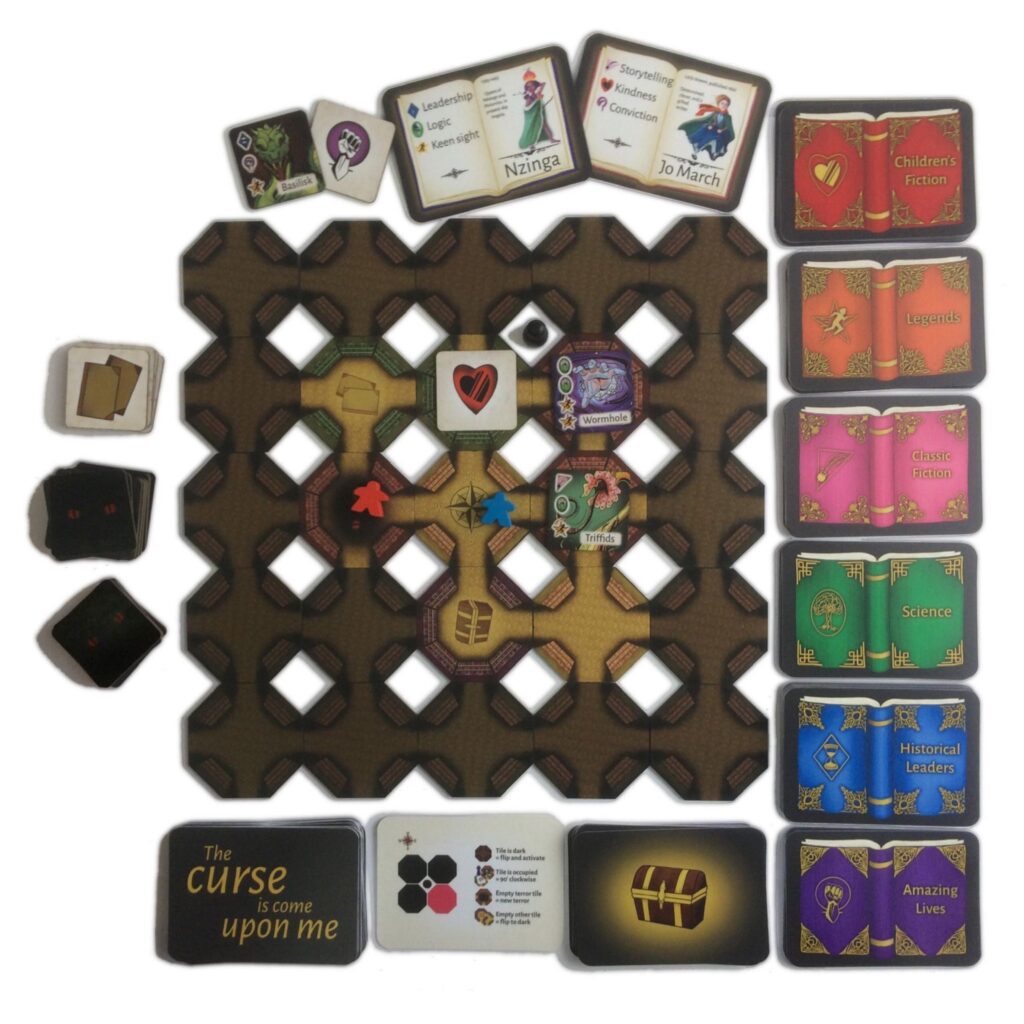
Ben:
How would you know what audience(s) to target for each design idea?
Jess:
Every game has more than one audience. It could be people who really like the way that the game is played, or it could be people who are really into the theme. Sometimes those audiences can be very diverse! Two years ago I created a game called Disarm the Base, which was about peace activists breaking into a military base to destroy the weapons.
I was selling the game to board gamers, but also to people in the peace movement. The important thing to remember is that different people often find out about games in different ways, so if you’re creating a game which you think is just perfect for a particular group, work out how to approach them. Can you include them in the game creation process in any way?
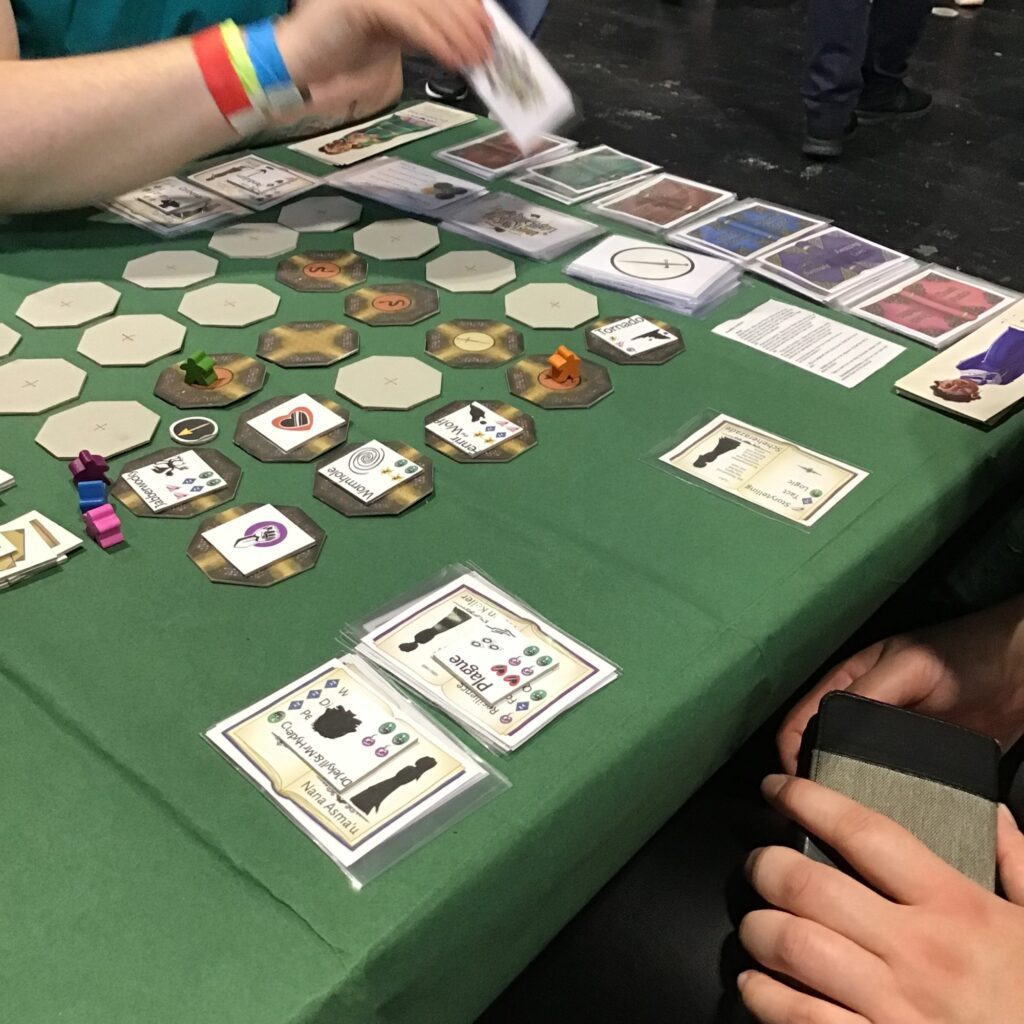
Ben:
How do you make a game about something you have researched deeply?
Jess:
I think it’s important that you, as the designer, love the theme of your game. While it’s possible to fit a different theme onto a game, I think you can tell if the whole package has been crafted with real affection. There’s an attention to detail that you only get when the designer has done the research and knows the subject. It makes for a much better game. (Just to add…) While games about zombies or pirates or superheroes may come in waves of fashion, there is genuinely no substitute for a theme that you love.
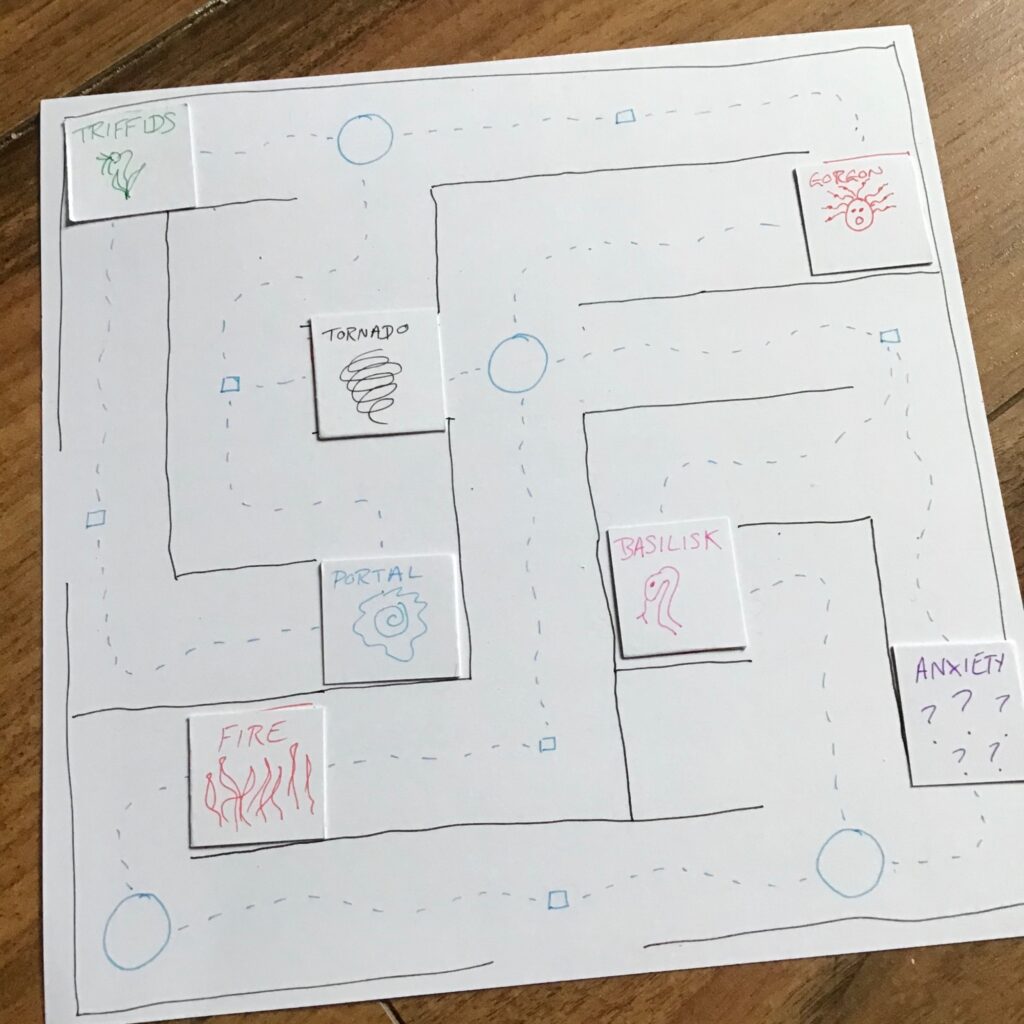
Ben:
What are the essential tools to your game design process?
Jess:
A pen, a pair of scissors, and some card. I find that a paper cutter is also useful. The first ideas are always done on paper. I move to digital fairly soon, and I use Procreate for images, Component Studio for the cards (it’s essentially mail merge for cards and you can upload an excel spreadsheet) and then I upload all these into Tabletop Simulator or Screentop. Sam and Ella (doing the art for Library Labyrinth) also use Procreate, and we’d all highly recommend it.
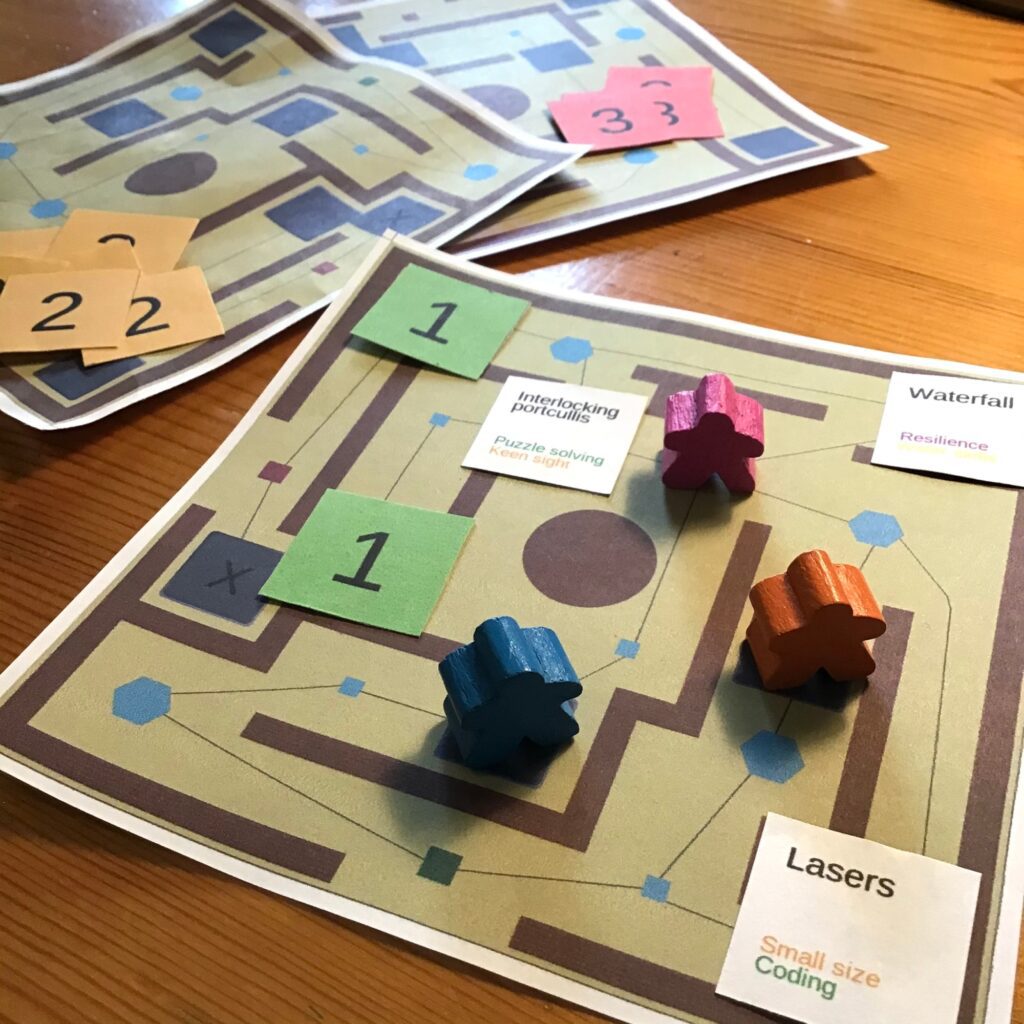
Ben:
What is the most important mechanic of game design in general?
Jess:
Obviously the most important mechanic is player interaction. But that’s a bit of a trick answer! All the mechanics in a game need to flow together, and they also need to fit the theme of the game. The mechanic I personally like the best is trick-taking — although I haven’t actually used it in games!
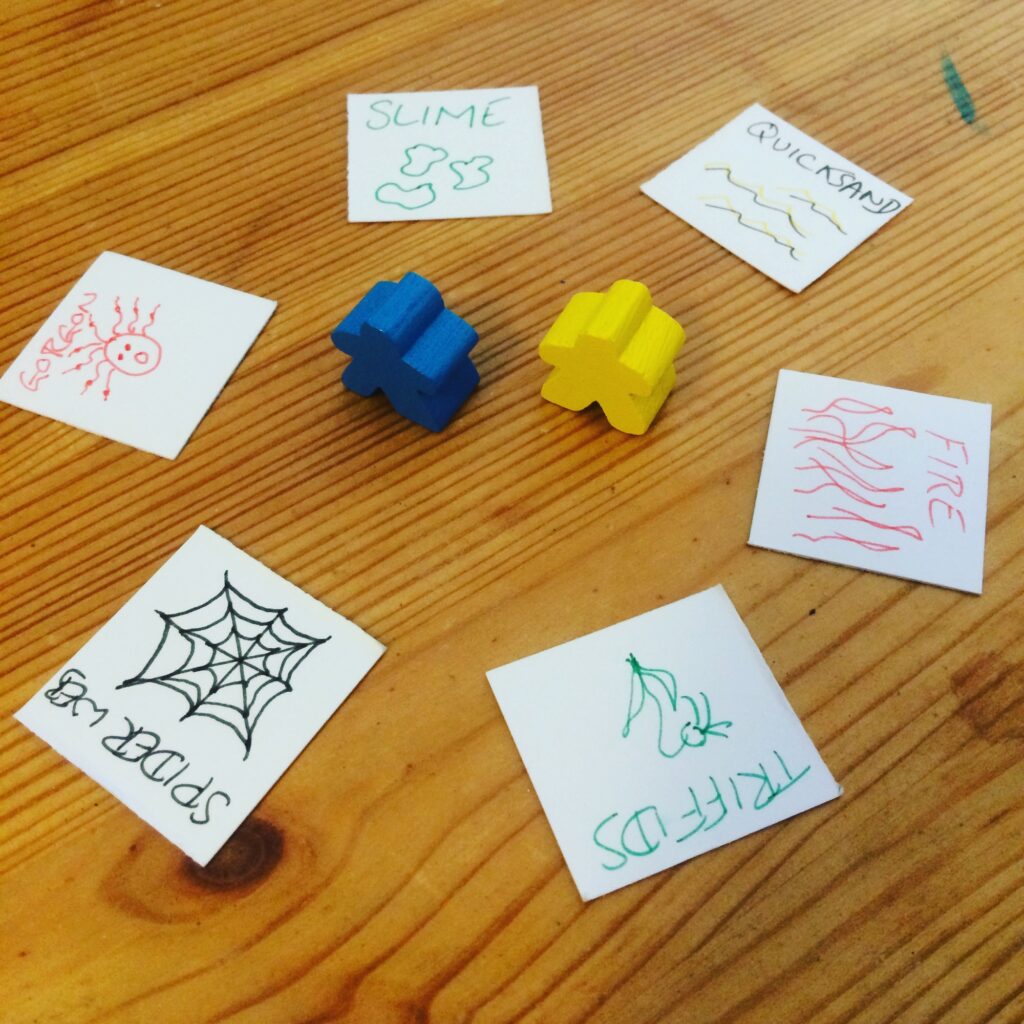
Ben:
Game design or gameplay or both?
Jess:
I really enjoy playtesting, particularly early designs. There is something about taking an idea to a group of people, saying “I don’t know if this is going to work” and then just seeing what happens. So that’s a bit of both!

Ben:
What are the most difficult and easiest stages in your overall design?
Jess:
The most difficult stage is either when you’re balancing the game, or when you’re deciding which bit to cut. Balancing is tricky because it can make or break the game. You need to work out whether the actions you’ve just taken work with the game generally, or whether it’s just a chance that you pulled a good hand. Could it have been radically different? Would that be a problem? Deciding which bit to cut is difficult for a different reason.
It can be quite emotional, as you’ve become attached to the game as you’ve developed it — but sometimes there are parts of games that just don’t fit. The easiest bit is probably the first part of the process when you’re working out what actually works — although maybe that’s just the most fun bit!

Thank you to Jess and the team over @ Dissent Games for allowing me to get some good insight for our readers, and board game design hints and tips overall.
Go check out their latest creation below, Library Labyrinth, to be involved, and to start bringing more board games like this to the market, I know I can’t wait to see it out in the wild!
Website: https://www.librarylabyrinth.com
Facebook Group: https://www.facebook.com/groups/416452332782608
Pre-launch Page: https://www.kickstarter.com/projects/dissentgames/library-labyrinth
Full playable game on Screentop: https://screentop.gg/@DissentGames/LibraryLabyrinth
Featured Image Credit: Dissent Games
NOTICE: The Passing Nerd Team will be doing the hard work of finding the best deals, lowest prices, and putting reviews from our own experience as ‘nerds’. The team only recommends products and gives honest feedback where possible, all of our opinions expressed here are our own. This site may contain affiliate links at no additional cost to you, we may earn a small commission when you go clicky click on a product away from the site, this all goes back into keeping the site going and providing cogs in the wheels.